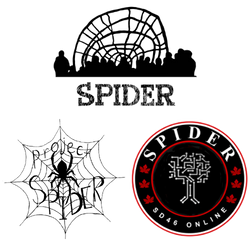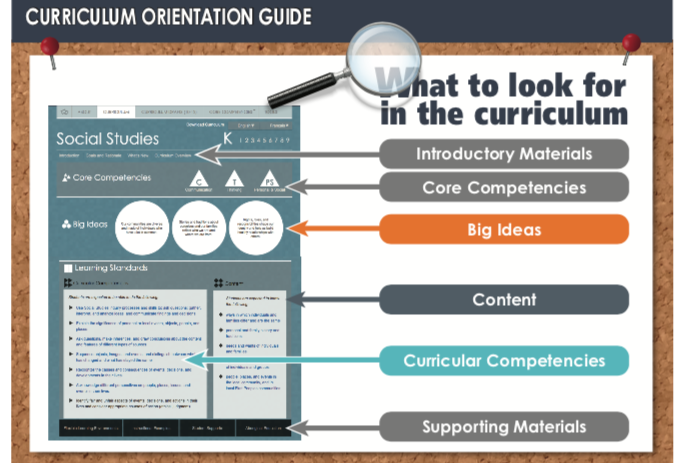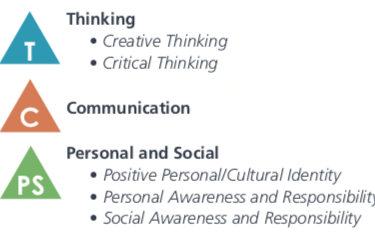On this page
Elementary SPIDER K-6 | Supported Home Learning Program
 Spider Elementary, is part of the larger SD46 K – 12 SPIDER (Students Participating in Distance Education Resources) school.
Spider Elementary, is part of the larger SD46 K – 12 SPIDER (Students Participating in Distance Education Resources) school.
SPIDER Elementary is a public supported learning program and part of School District 46 – Sunshine Coast, serving students from kindergarten to grade 6.
SPIDER Elementary provides direct support to parents who prefer a home learning setting, and want to take an active role in educating their children. It also provides rich opportunities for learning in community on Tuesdays at Roberts Creek Elementary School and Thursdays at Camp Byng in Roberts Creek.
Unique features of SPIDER Elementary are:
- Allowing families to act as the primary educators, while also enjoying the opportunities to learn in community and have the support of a Teacher Consultant.
- We are a parent participation program. Parents are generally expected to attend and participate in events with their child. Families sometimes work together to give each other breaks, and we also have a limited drop-off program called “Team SPIDER”. Parent Participation can also mean volunteering in other ways to support SPIDER Elementary.
- An emphasis on hands-on learning, time spent outside, and learning from experts when possible.
- A family friendly environment that enables siblings of all ages to be present.
Enrolment with SPIDER requires families to commit to meeting our Minimum Requirements (see below) and provides families access to a pool of resources. Families are free to make use of as many or few of these resources as suits their needs. Specifically these resources include:
- A Teacher Consultant to help with creating a Learning Plan, meeting educational objectives and assessing student learning.
- Learning in community programming twice a week. Tuesdays at Roberts Creek and Thursdays at Camp Byng.
- Multiple extended experiences (field trips) per term, both on and off the Sunshine Coast.
- A Resource Lending Library to support learning in all subject areas (text books, manipulatives, early readers, science kits, etc).
- Learning funds to be spent on resources or activities that support the learning objectives outline in the Learning Plan.
Interested in joining SPIDER Elementary?
- Let your current school know you’re considering moving to SPIDER.
- Make contact with and then meet with a SPIDER Teacher Consultant (Sheena Careless, scareless@sd46.bc.ca) or SPIDER Principal (Duncan Knight, dknight@sd46.bc.ca) to ask more questions and figure out if SPIDER is a good fit for your family.
- Connect with a Parent Mentor and have any questions answered.
- Come to a day or two at Roberts Creek Community Elementary (Tuesday) and/or Camp Byng (Thursday), or both, as determined by the parent and teacher/principal.
- If you decide to register: From within School District 46: Ask for a cross-boundary transfer form from your current school, have it signed by your outgoing principal and then sent to our principal for signing. Once that’s approved we can follow up with you. / From out of District: contact what would be your catchment school, register there, then ask for a Cross Boundary Transfer to SPIDER. Once that’s approved we can follow up with you. Fill out any other required paperwork, and submit it to our Administrative Assistant.
- Connect with your Teacher Consultant for an orientation including supervision and participation requirements.
- Note – Students not registered in a SD46 school will not be able to participate in activities until registration is complete.
CORE VALUES
Core values have been developed by SPIDER parents and teachers over time.
We review these once a year.
At last year’s Year End Parents Meeting, everyone was given four dots to use to indicate the 4 core values that were most important to them. Those with less votes are not unimportant; they’re still part of our top 10.
The ranking for this year, and number of votes received, is
- Sustaining a sense of community (5)
- Parent Participation (4)
- Family based learning (3)
- Experiential learning (3)
- Maintaining a respectful learning environment (2)
- Consensus-oriented decision making (2)
- Parents are the primary educator and guide (1)
- Fostering environmental connections and awareness (1)
- We are all responsible for our own and each other’s learning (0)
- We are all responsible for our own and each other’s safety (0)
And a proposed new value to vote on once we can discuss it together:
- Flexibility/Fluidity, but with underlying order
SPIDER Elementary Code of Conduct
YOUNGERS (Grades K-3) – You are expected to:
- Stay in bounds
- Do your best to participate in sessions
- Be respectful of others
- Do your best not to disrupt the session
- If you are having trouble, ask your parent if it is ok to leave
OLDERS (Grades 3-6) – You are expected to:
- Stay in bounds
- Participate in sessions
- Be respectful of peers, parents, teachers and presenters
- Not be disruptive
- If you are having trouble, ask your parent if it is ok to leave.
ADULTS – You are expected to:
- Model participation
- Be respectful of peers, students, teachers and presenters
- Support your child in participating, recognize when a break or going home would be best
- Supervise siblings and ensure that if they are participating you are helping them do so safely
CELLPHONE USE :
- Adults are expected to demonstrate tech awareness (use as little as possible, move out of sight, use as a tool not a toy, but offer grace to each other).
- Students are expected not to use personal tech while at school, unless it is an emergency.
POLICIES AND PROTOCOLS
Learn more about the things that keep SPIDER running smoothly!
- Team SPIDER (drop-off program)
- Parent Participation Guidelines
- Communication Flow Chart (below)
- Decision Making Flow Chart (below)
- Student Safety Protocol (below)
- Use of Learning Funds
PARENT PARTICIPATION
As a Parent Participation program, parents are expected to be present in sessions with their children, unless taking advantage of TEAM SPIDER (the Drop-off program).
Benefits of Parent Participation:
- Community building and connection
- High child/adult ratios allow for increased safety and increased one-on-one instructional opportunities
- Allows parents with toddlers to stay together as a family
- Allows parents to extend learning beyond SPIDER sessions, deepening understanding and connecting material to students interests at home and in the community.
If a parent is unable to attend SPIDER sessions (or needs to leave for a short time):
- Parents are required to make arrangements in advance with another parent (not a teacher) to become a Guardian Parent for their child
- Guardian Parents are to notify teachers that they have another child in their care
- Guardian Parents are required to have emergency contact information for children in their care
- Guardian Parents are required to notify teachers when leaving at the end of the day whether they are taking the child in their care with them or when that child’s parent has returned
- Teachers hold the general responsibility for the safety and welfare of all students including those in attendance without their parents.
- Expectations set by teachers shall be supported by participating parents, and followed by those students attending without their parents.
If a parent is not directly involved in an activity (because they have children in different sessions, they need to connect with another parent, they have toddlers to attend to, they need to go for a walk, they feel it is better for their children to enjoy some independence, etc.):
- Parents are to notify teachers when appropriate
- Parents are to be on site and found easily
- Parents are asked not to disrupt sessions
COMMUNICATION
Curious about communication in SPIDER? Check out the handy flow chart below.
DECISION MAKING
After much decision making, we have created a flow chart to guide our decision making!
STUDENT SAFETY PROTOCOL
A safety plan will be developed, in accordance with the protocols outlined below, when a SPIDER student demonstrates behavior that is harmful, unsafe, or significantly non-compliant (interfering with learning or organization) and safety becomes an issue. The Plan will be developed by the Teacher Consultant, in consultation with the parent and SPIDER Principal. SPIDER supports the opportunity for families to meet together to address issues that arise for their children, and to work through these issues using restorative practices that hold the child’s learning and safety at the forefront. In some cases SPIDER staff may be called to facilitate these discussions.
SPIDER continues to support the perspective that the parent is the primary educator of their children, and therefore assumes the parent accepts full responsibility for guiding and ensuring a safe learning situation for all children in consideration of the full SPIDER community.
Expected Safety Plan protocols to be followed by SPIDER staff and the parent community, should the need arise:
- Following the confirmation of the safety plan with a parent that includes participation in “Learning in Community Days” at Camp Byng, Roberts Creek, or on field trips, the parent is to notify the teacher that they are intending to participate prior to the date, and to confirm attendance should a specific date for participation be identified.
- Families whose child has been directly harmed by the action of another student will be notified that the child’s continued participation is dependent upon an articulated safety plan outlined below (ie a Safety Plan is in place). Should the Safety Plan include participation in “Learning in Community Days” and/or field trips, the date(s) the student will be present at either Roberts Creek Community Elementary or Camp Byng, or a field trip will be confirmed with the family.
- Teachers must be confident the student and parent are aware of SPIDER behaviour expectations, consequences for non-compliant or unsafe actions, and supervision requirements. This may require a family to come early or meet with the teacher outside of programming time to discuss and review. If the student is unable to satisfactorily demonstrate their understanding of expectations, acts in an unsafe or overly impulsive manner, or the parent is not willing or able to provide the direct supervision required (when the student is not in the direct care of the teacher) then it will be determined by the teacher that the child will not participate and the family will leave. This is to occur each date the student is to participate.
- The parent is expected to provide 1-1 supervision at all times both inside, during sessions, and outside activities or free play time, with the exception being when the child is under the direct care of the teacher. Note: 1 – 1 supervision is where a parent is working or playing along side the child and is ready to redirect or intervene immediately when needed ie when the child is beginning to be frustrated or triggered – early signs.
- The child is not to go to the toddler room; breaks, should these be needed due to escalating (but not yet unsafe) behaviour, will be taken with the parent at another location in the area and are not to involve free play with other students.
- Generally:
- The child must be under the direct 1-1 supervision of the parent, or teacher at all times, including outside play time:
- The teacher will intervene should this level of supervision not be maintained, the parent will be directed by the teacher to re-establish 1-1 direct supervision (allowing room for unexpected circumstances for the parent). Should it be necessary for the teacher to provide a further reminder the family will be asked to leave. In this case, continued participation in the “Learning in Community Days” and field trips will be reviewed by school staff, including the principal. The child would not be permitted to continue participation until certain conditions have been met by the family;
- The parent will seek additional supports for their child to help him/her in learning self regulation and positive social play behaviors.
- Should a parent not be willing, or able to provide the participation/supervision requirements outlined above, the Principal shall be notified in order to review whether continued participation at Camp Byng, Roberts Creek Elementary, or on field trips will be in permitted and in the best interests of safety.
- Review of conditions of participation: after several (a number to be determined based on the individual circumstances) participation days where there have been no incidents of concern, that involve harm (physical or emotional) to another, damage to property, or significant non-compliance, the participation safety plan (above) will be reviewed whereby a supported plan will be developed to allow for increasing independence. Families who have been specifically affected by the behavior of the child will be notified of the beginning transition to independence.
MEET THE STAFF
PROVINCIAL CURRICULUM
CLICK HERE to go straight to the BC Ministry of Education Curriculum page.
OVERVIEW OF THE CURRICULUM
The Ministry of Education sets out the curriculum that all students are expected to follow, where ever they do their learning. The current curriculum was updated in 2016 to be more more flexible and learner-centred! It aims to be more concept-based (understanding big ideas, rather than memorizing isolated facts) and competency driven (emphasizing what you can do, not just want you know).
The curriculum is available online and is searchable by grade and subject areas.
THE CURRICULUM AND SPIDER
SPIDER families are expected to work to meet the curriculum set out by the Ministry of Education. The SPIDER teacher consultants assist families in this by helping them to develop Learning Plans, by running curriculum based Learning in Community days, by providing feedback at the twice yearly Three Way Conferences, and by being available to answer questions or provide resources as needed.
The SPIDER Learning Plan templates were built based on the curriculum, so if you plan your year using them you will be on track. However, the BC Curriculum website has useful elaborations and examples throughout and we recommend families spend time visiting it each year.
PARTS OF THE CURRICULUM
(information taken from the BC Ministry of Education “Curriculum Orientation Guide”)
The online curriculum includes lots of examples and elaborations to make it clear what is meant by these. Sheena also made this handy TUTORIAL you can watch that walks you through SPIDER-relevant learning on the Renewed Curriculum: https://youtu.be/zm6maX28Ke4
1. Core Competencies
Core Competencies are at the centre of the curriculum redesign in BC.
Core Competencies are sets of intellectual, personal, and social and emotional proficiencies that all students need to develop in order to engage in deeper learning. The Core Competencies include thinking, communication, and social and personal competencies.
2. Big Ideas
These are what students are expected to UNDERSTAND.
By checking out the Big Ideas for each subject area and grade, you get a quick snap shot of what a student should understand by the end of the year. They can help you identify topics you have already covered and ones that you still need to focus on.
3. Learning Standards
a. Curricular Competencies
These are what students are expected to DO. They are skills and abilities that build upon each other year by year. They include developing scientific, mathematical or artistic thinking skills such as estimating, hypothesizing, working safely with materials, taking risks, and including others.
b. Content
These are the things students are expected to KNOW. These are the details and specific pieces of knowledge required to fully understand the concepts laid out in the big ideas.
ASSESSMENT
1. SPIDER
Learning Plans and Three Way Conferences are the main form of assessment in SPIDER. The Learning Plans outline the ways families plan to meet the curriculum. Then, twice per year students, parents and a SPIDER teacher meet to review what has been accomplished, set goals for the time to come, and address any areas that have not yet been met. Report cards are generated based on these meetings.
2. Performance standards
The Ministry of Education has put together documents called Performance standards which help us all to see examples of student work that meet expectations for READING, WRITING, MATH, SOCIAL RESPONSIBILITY and HEALTHY LIVING. They are very handy to look at when you ask yourself the question “What level is my child’s work at?” It is all online and the link is here: http://www.bced.gov.bc.ca/perf_stands/



